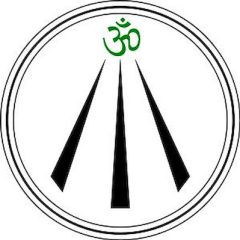![]()
I’ve been thinking lately of OMS‘s tenets, “Nature is good,” “Nature is very good,” and “Thou art God.” It has struck me that maybe these are more redundant than we first thought.“Nature is good,” and “Nature is very good,” of course are purposely redundant. That’s part of the joke, and that humorous tradition has been handed down to us from the days of the first Reformed Druids – those days of yore we now refer to as “The Sixties.”“
Nature is good” states the obvious. We know that Nature and Mother Earth are considered synonymous. When we say “Mother Earth,” or “Gaia” we mean “nature,” and when we say “nature” we mean the planet. That’s at least subconsciously understood.”Thou art God,” is simply stating that you and I and the neighbors and the people of China, or India or anywhere else on the planet are, collectively, “God”. And we never (or rarely anyway) say, “I am God,” because our “Godness” is dependent upon everyone else’s “Godness.” I’m not God unless you are God as well. It is like the Kabbalistic teaching that God is like the ocean, that even though we speak of “7 seas” and we differentiate between the Pacific and the Atlantic, etc., if we view the Earth from the South Pole, we can see that there really is only one ocean. Further the Kabbalah teaches that we, though individuals whilst in human form, are really just drops taken from that ocean, containing the same ingredients that any other drop taken from the ocean will have. When we pass on from this world, we return to that ocean, and become one with it.
Now consider that 65% of the Earth is water. Consider also that about 65% of the human body is also water. (The Bible is wrong! We’re not made of dust, we’re mostly water!) But this shows the relationship between our planet and ourselves. Another idea similar to this one is found in the Science Fiction series, Star Trek Deep Space Nine. One of the dominant alien species of that program are The Founders, a shape shifting species, of which Constable Odo (the space station’s security officer) is one. Odo’s composition is a gelatinous one. When on duty he assumes human form, but when resting he relaxes and retreats to a bucket. When Odo gets terribly ill, it becomes necessary to take him to his home planet. There he merges with the rest of his people, in what they call “the Great Link.,” which is an ocean composed of all of the Founders, merged together, and which covers 99% of the planet (I don’t know if the island on the planet was permanent, or just put there temporarily to accommodate the humans who accompanied Odo on this visit). This illustrated the Kabbalistic idea of the “ocean of God” very well.
We recognize that our planet Earth is a living, breathing entity, and that all the life that exists on this planet is a part of this whole. All of nature is interdependent upon all of nature. Human kind is a part of the interdependence, so that we’re not only one with each other, we are also one with the planet. This is called “The Gaian Hypothesis.” We consider Gaia to be a Goddess. If Gaia, or Nature, is a Goddess, then we, as part of Gaia are also Goddess. “Thou art God.” “Nature is good,” or, “Nature is God.” If therefore Nature is God, and Thou art God, then of course, Nature is Good, and you and I are good and all of the planet is good, and we are God.S o, at this point do we really need all three tenets? Or, by adding “thou art God,” are we just extending the redundancy? Isn’t “Thou art God” enough? Keep on pondering my brothers and sisters, the rabbit hole is deeper than you think.

